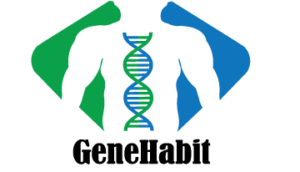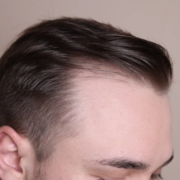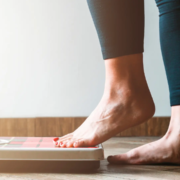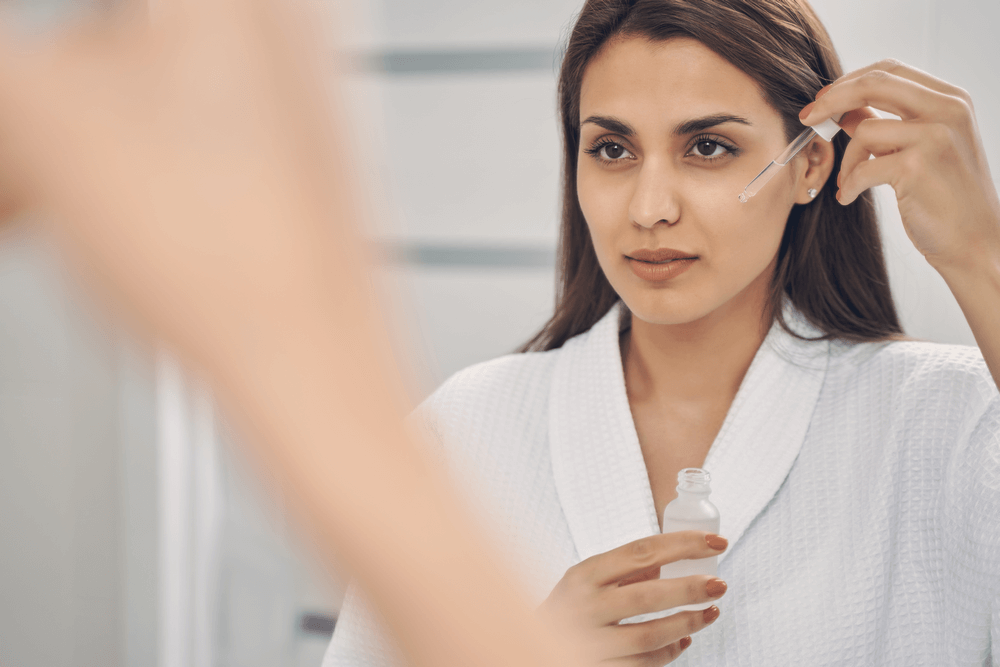Iron and Hair Health: The Vital Mineral Your Hair Needs
 Iron is an essential mineral for human health, playing a role in many different bodily functions. One of the most well-known roles of iron is its importance in the formation of red blood cells. However, iron also plays a critical role in hair health. Iron is essential for life. It’s used in many processes including oxygen transport and production of hormones, but most importantly it helps your body grow! Iron is a vital mineral for the health and beauty of your hair, but it often gets neglected. If you’re losing hairs then get checked to see if there’s an issue with iron levels in that area!
Iron is an essential mineral for human health, playing a role in many different bodily functions. One of the most well-known roles of iron is its importance in the formation of red blood cells. However, iron also plays a critical role in hair health. Iron is essential for life. It’s used in many processes including oxygen transport and production of hormones, but most importantly it helps your body grow! Iron is a vital mineral for the health and beauty of your hair, but it often gets neglected. If you’re losing hairs then get checked to see if there’s an issue with iron levels in that area!
Why Is Iron Important For Our Body?
Iron is important for our body because it helps us produce red blood cells. These cells are responsible for carrying oxygen throughout our bodies, and without enough iron, we can become anaemic. Symptoms of anaemia can include fatigue, shortness of breath, dizziness, and pale skin.
While there are many different types of anaemia, the most common is iron-deficiency anaemia. This type of anaemia can be caused by a number of factors, including a poor diet, blood loss, or pregnancy. Iron-deficiency anaemia can be treated by taking iron supplements and making sure to get enough iron in your diet.
Role Of Iron In Hair Health
In order for hair to grow and remain healthy, it needs a sufficient amount of iron. A lack of iron can lead to hair loss and a decrease in hair quality. This is because iron is necessary for the production of haemoglobin, which transports oxygen from the lungs to the rest of the body. Haemoglobin is also responsible for supplying nutrients to the scalp and hair follicles.
How Deficiency Of Iron Can Impact Hair Health
Iron is an important mineral for hair health. It helps to transport oxygen to the cells and tissues, including the hair follicles. Without enough iron, the hair follicles may become starved of oxygen, leading to weaker, thinner hair. An iron deficiency can also lead to hair loss.
If you think you may be deficient in iron, it’s important to see your doctor for a blood test. Treatment for iron deficiency usually involves taking iron supplements. Getting more iron-rich foods in your diet can also help improve your overall health and well-being.
How Can One Get Iron? 
Fortunately, there are many different ways to get the recommended amount of iron each day. You can eat foods that are high in iron, such as red meat, dark leafy greens, beans, and fortified cereals. You can also take iron supplements in the form of pills or injections.
Most Recommended Iron Supplement Products by health experts are:
- Best overall iron supplement: Thorne Iron Bisglycinate.
- Best affordable iron supplement: Nature Made Iron 65mg Tablets.
- Best iron supplement with vitamin C: Pure Encapsulations OptiFerin-C.
- Best vegan iron supplement with vitamin C: Garden of Life Vitamin Code Raw Iron.
If you are concerned about your hair health, or if you have noticed a decrease in hair quality or excessive hair loss, talk to your doctor about getting a blood test to check your iron levels. If your iron levels are low, there are hair loss genetic treatment options available that can help improve your hair health.
How Do Genes Impact Iron Absorption?
There are a number of factors that influence how well your body absorbs iron. One of these is your genes. Some individuals are simply better at absorbing iron than others. However, there are also genetic tests that can be performed to determine whether you have a genetic mutation that affects your ability to absorb iron. If you do have this mutation, there are supplements available that can help increase your iron levels.
The advances in genetics and DNA sequencing technology have enabled scientists to report several problems associated with low iron absorption. In a recent study conducted on Hispanics, US adults displayed that individuals suffering from alopecia or telogen conditions had significantly lower levels of iron when compared to healthy control group showing slower hair loss frequencies as per standard daily intake recommendations.
Another important factor that affects iron absorption is the presence of other minerals in the body. For example, zinc and copper play a role in the absorption of iron, so if you are deficient in either of these minerals, your body will be less able to absorb the iron from food sources.
Image- https://www.canva.com/photos/MADmTOqsi3Q–genetic-engineering/
With DNA Test Mitigate Hair Fall Risk By Knowing Iron Deficiency Risk
DNA tests can help to mitigate the risk of hair loss by detecting low iron levels. The test looks at an individual’s genetic profile and can determine if they are more likely to experience hair loss if they have low iron levels. With this new strategy, you can be sure that your hair loss treatment will have a much better chance of success. Doctors and experts know exactly which supplements are best for each individual this means zero guesswork and zero harmful side effects.
By Taking Up DNA Test You Can Mitigate These Hair Loss Conditions Before Its too late:
- Androgenic Alopecia
- Alopecia Areata
- Frontal Fibrosing Alopecia
- Telogen Eluvium
The lack of iron can lead to thinning or balding as well an increased risk of various other diseases such like low haemoglobin, fatigue and immunity problems. Getting tested for DNA would be worth it!
If you like to know more about DNA tests and how vitamins-minerals are processed by our bodies for hair health visit here
DNA- Based Hair Loss And Hair Care Solutions With HairLife
With Genetic testing for Hair loss, one can understand and know their risk for hair loss, hair thinning, or premature greying. Genetic testing also identifies the cause of premature hair loss, greying, thinning, or baldness due to genetic factors, nutritional deficiencies, and stress.
Have a look at our products with consent links:
HairLife DNA test helps you to identify the risk of premature hair loss, greying, thinning and baldness due to genetic factors, nutritional deficiencies and stress. HairLife DNA test also reveals the specific type of hair issues and a personalized hair care solution suitable for you to keep your hair healthy and nourished. Your personalised DNA report provides recommendations for hairstyles, nutrition recommended supplements, and hair care products. Click here to read more about the HairLife test
GeneFit DNA Test provides a 360 degree personalized genetic insight about your lifestyle and well-being risks that include – the risk of weight gain or loss, nutritional deficiencies, food sensitivities, optimal fitness activities, sleep, and stress. Click here to read more about GeneFit test.
NutriLife
NutriLife DNA test gives an insight into your nutritional requirements of vitamins and minerals based on your genetic profile. Get personalised recommendations for essential nutrient intake with NutriLife DNA test report and include the recommended food sources in your diet. Your food allergies or sensitivities along with taste perception are also identified in the genetic testing to maximize health benefits. Click here to read more about NutriLife test














Leave a Reply
Want to join the discussion?Feel free to contribute!